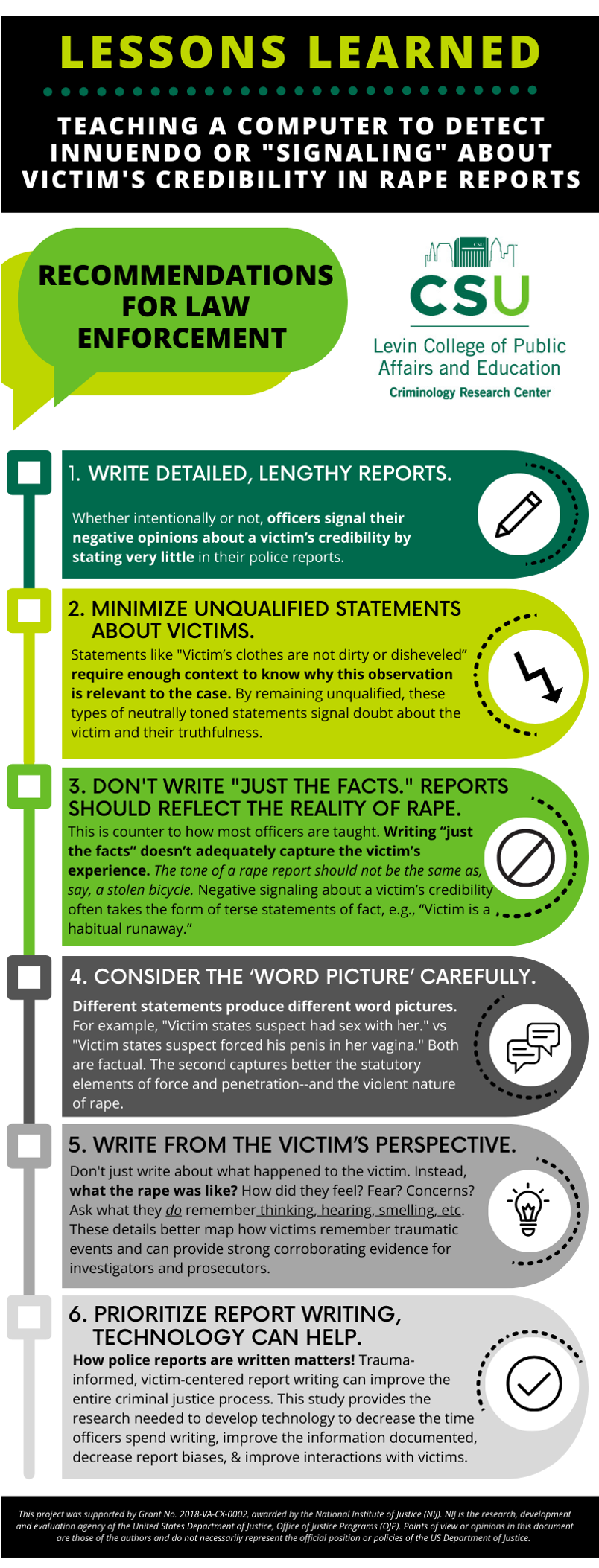Posted on September 27, 2023 at 4:39 AM, updated September 27, 2023 at 4:53 AM Print
 Research utilizes artificial intelligence to detect officer bias and make recommendations to encourage a trauma-informed, victim-centered approach to crime instigations.
Research utilizes artificial intelligence to detect officer bias and make recommendations to encourage a trauma-informed, victim-centered approach to crime instigations.
As Director of Levin’s Criminology Research Center at Cleveland State University, Dr. Rachel Lovell recently co-authored the first two initial articles from a larger study meant to teach a computer to detect signaling via tone that predicted case progression and outcomes.
Findings indicate that the law enforcement reports recommended for prosecution were longer and had positive sentiment and positive subjectivity. Cases not recommended for prosecution tended to be shorter with more neutral statements of “fact” or observations.
A recent Cleveland.com article noted, “Lovell’s research represents a new frontier among criminologists, who have begun scaling data to measure things like domestic violence, terrorism, and crime hotspots.”
Dr. Lovell and her team in the Criminology Research Center have released recommendations for law enforcement based on the results of their research. These specific lessons learned encourage officers to be mindful of what they say (and don’t say) when reporting cases of sexual violence, improving the entire criminal justice process.

